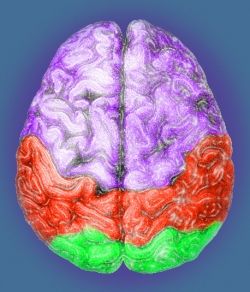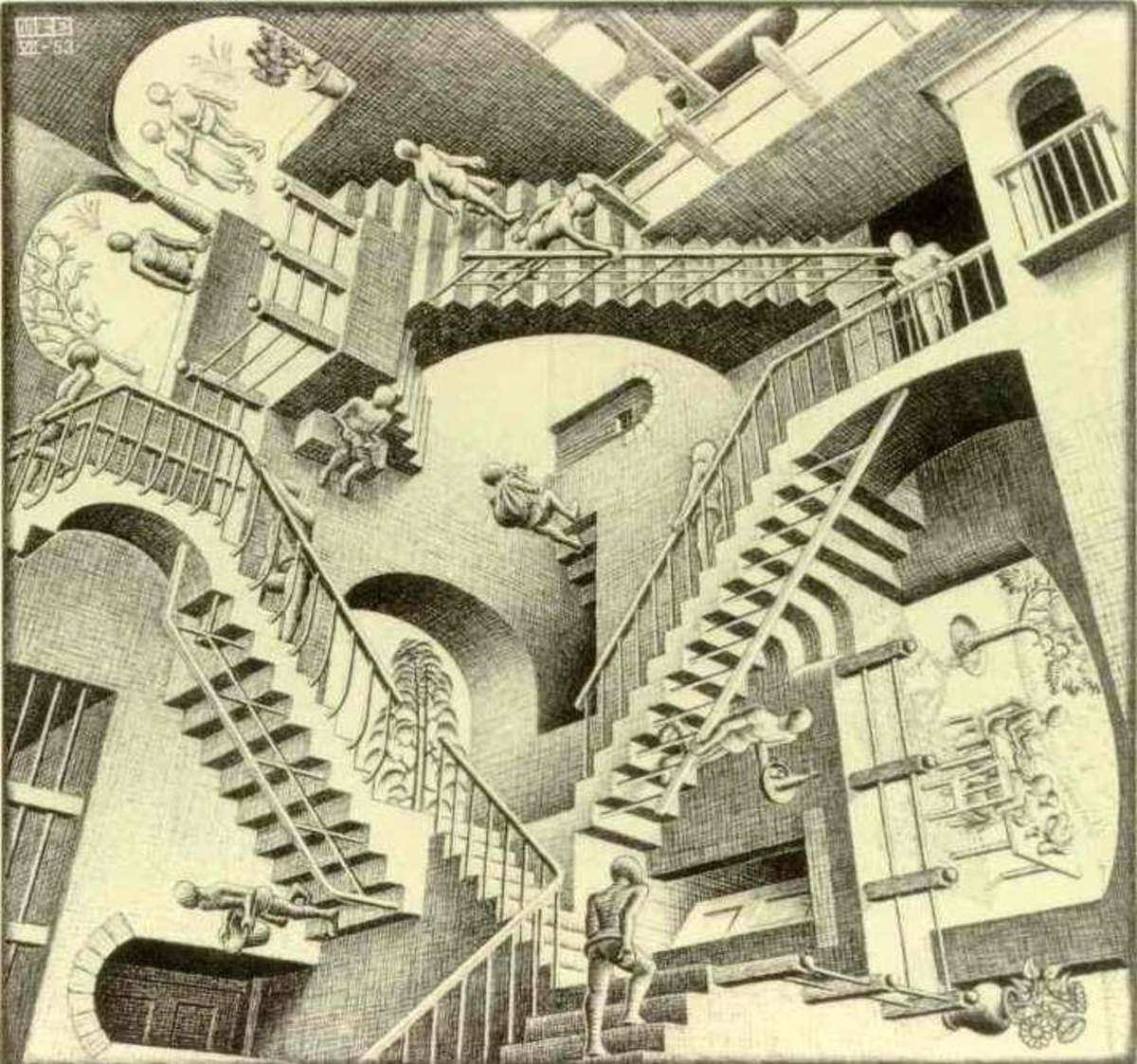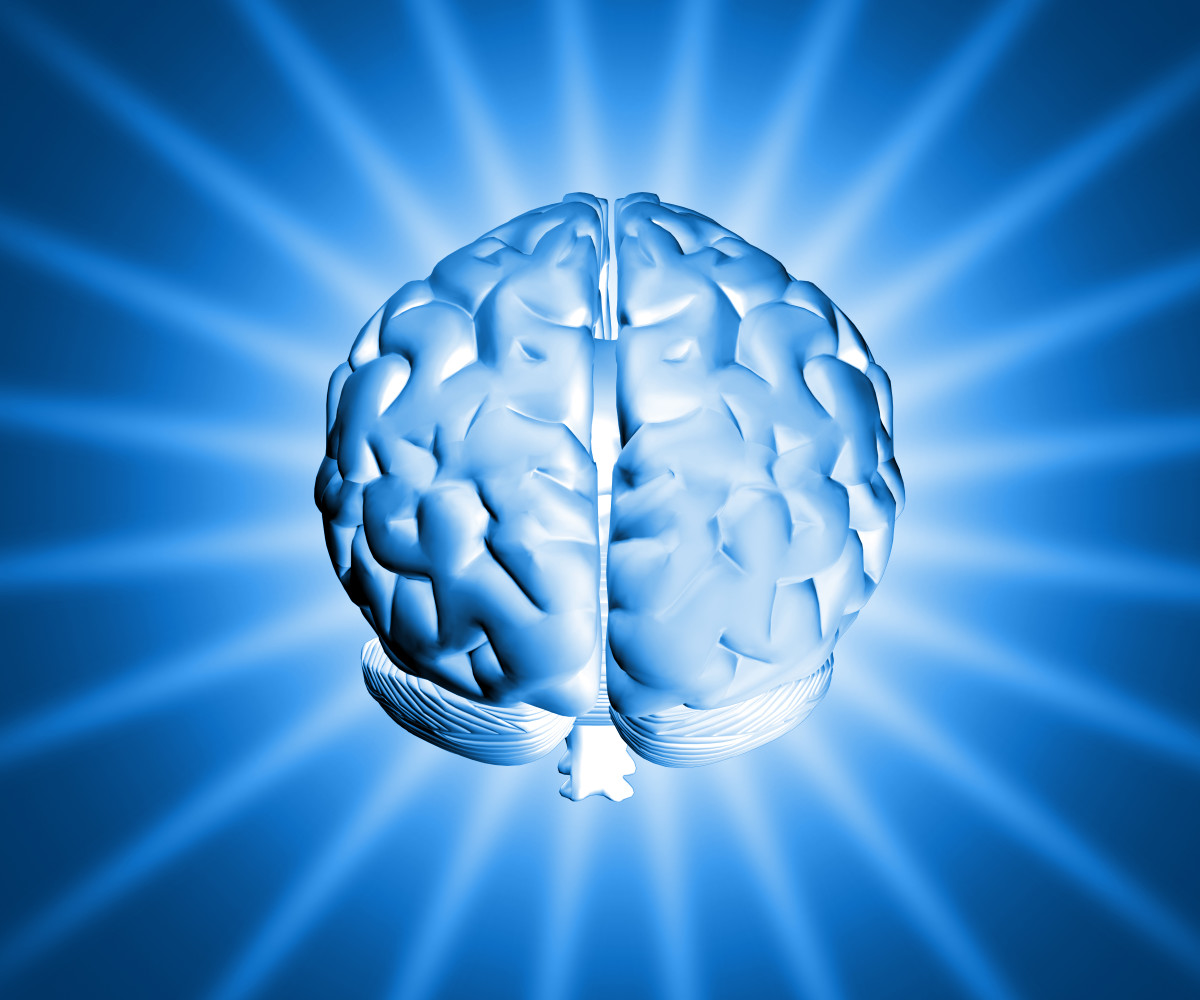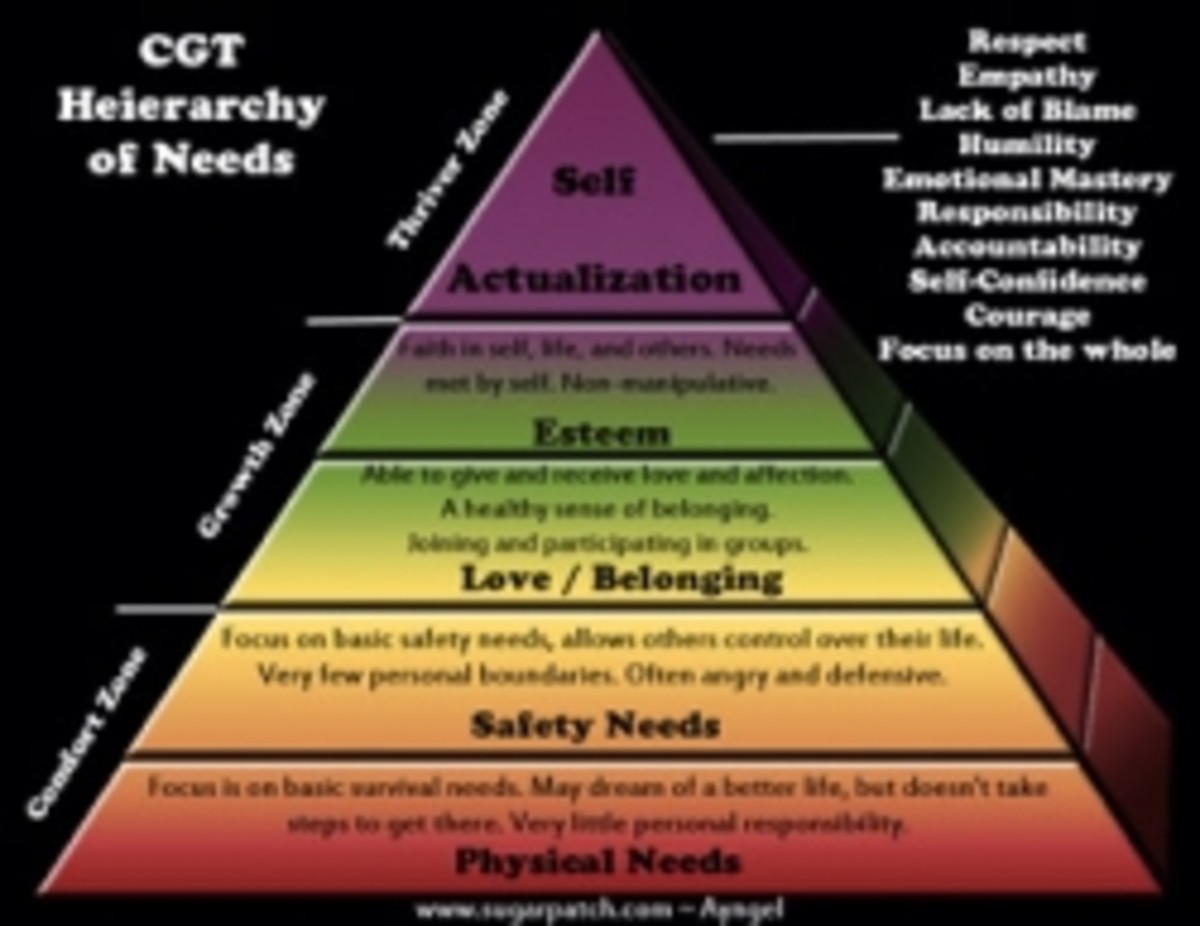Mental Illness Quiz: Myths and Misconceptions

Ten Myths About Mental Illness
As someone who's lived with a mental illness for over fifteen years, I'm well-acquainted with the many myths, misconceptions, and false beliefs people have about mental illness.
These myths are casually propagated by people who don't know any better, but choose to shoot their mouths off anyway. I overhear it all the time, whether it's on the bus or on the news. It causes a lot of damage to those of us who are mentally ill.
Whether you love someone who's mentally ill, or you'd just like to learn more about mental illness, read on for a list of myths and facts about mental illness. Then, please do your part to educate others. You'll be making a lot of lives a lot better.
1 out of 4 People Worldwide Live With Mental Illness
According to statistics from the World Health Organization, at least 25% of the population will experience mental illness at some point in their lives. If it's not you, it will be someone you know and love. Take the time to educate yourself about mental illness!
A lot of people don't know how prevalent mental illness is. When they think of mental illness, they think of drab hospitals where people shuffle around wearing pajamas all day, all the while thinking they're the Queen of Gondwanaland.
According to the World Health Organization, 1 in 4 people suffer from a mental illness worldwide. That means that someone you know is mentally ill.
The fact is that most mentally ill people are functional, productive members of society. We have partners, children, pets, and jobs. We face more challenges than most people do, but basically we get on with our lives, and our lives are filled with ordinary things. We plant gardens and go to Little League games. We lead scout troops and run marathons. We cook dinner and learn origami. By and large, our lives are just like yours. In fact, you already know some of us -- you just might not know it.
When people think of mental illness, they often think of someone who hallucinates -- who hears voices, or sees things that aren't really there.
The fact is that most mentally ill people do not ever hallucinate. Hallucinations are a defining characteristic of schizophrenic disorders -- but most mentally ill people are not schizophrenic. Mental illness encompasses a vast array of disorders, from relatively mild anxiety to bipolar disorder to depression, with the anxiety and depressive disorders being the most common.
One reason that mental illness is feared is a widespread belief that the mentally ill are "dangerous" or violent. The popularity of "psycho killer" movies in our culture does nothing to help this perception.
The fact is that most mentally ill people are not violent, and most violent people do not suffer from mental illness. It is true that, in rare cases, mental illness can prompt someone to behave violently. However, you're at much more risk for violence from a drunk, angry sports fan than someone who is mentally ill. So if you're concerned for your safety, volunteer at the local hospital, and skip the Cubs/White Sox game.
That's right! I said it!
It's a myth that anyone with a mental illness needs to be medicated for the rest of their lives. Mild forms of depression and anxiety, for example, can often be resolved by different kinds of talk therapy -- without medication. Seasonal Affective Disorder, in which a person becomes depressed only in the winter months, can be treated by a full-spectrum sunlamp.
My own mood is highly dependent on the amount of ambient sunlight. In years where there's a warm, sunny Spring, I only need a tiny maintenance dose of antidepressant medication. In years like the last one, where the sun never showed its face, I need higher doses of antidepressants, as well as other medications to augment their effects.
Over the years, there have been many theories about the causes of mental illness. At one time, the mentally ill were believed to be possessed by demons (and were sometimes burned at the stake, allegedly for their own good). In more recent times, mental illness was blamed on bad parenting -- or more usually, "bad mothering". No sexism there!
Currently, it is believed that mental illness is caused by deficits in various neurochemicals. The brain works by sending chemical signals, with different chemicals controlling different responses to stimuli. For example, the chemical serotonin is responsible for (among other things) feelings of pleasure. Someone who is depressed does not have enough available serotonin in their brains; they are unable to take pleasure in activities they used to enjoy, and are plagued by feelings of sadness, even despair.
Modern antidepressants work by increasing the available levels of serotonin in a person's brain. More serotonin, more pleasure, less depression.
Thanks to the media, there's a widespread perception that "everyone is on Prozac" and that people are "popping pills instead of dealing with their real problems".
In fact, many people who could benefit from psychiatric medication refuse to take it, and many people who start taking it quit within a few months.
Psychiatric meds are not something you take for fun. Many of them have undesirable side effects like weight gain or decreased libido -- and that's if they even work for you in the first place. It can take a lot of time to find the right medication, and going on and off different medications is exhausting at best. There's also a huge stigma attached to taking meds, and therefore a lot of self-judgment about needing them. In short, people don't take meds they don't need -- and in fact, many people avoid taking meds they do need.
People who do take meds take them because they need them. We take them because we know that if we don't slog through the side effects, if we don't try several different things until we find the right thing for us, all hell will break loose. We take them because we want a healthy, normal life for ourselves and our loved ones. We take them because "popping pills" is "dealing with our problems".
Ever since Freud, there has been a persistent belief that mental illness is linked to childhood trauma, or to plain old "bad parenting". Certainly, childhood trauma or abuse can teach a child bad patterns that result in low self-esteem and poor choices. But there is not a link between childhood trauma and mental illness.
The catch here is that mental illness has a huge genetic component. If Jenny's father has anxiety disorder, Jenny is predisposed to develop it himself. Moreover, her father may be less emotionally available to her, exacerbating any predispositions toward anxiety she may have. Since Jenny is a human child, she learns how to interact with the world in the way of all primates -- by imitating adults, in this case her anxious father. Jenny therefore learns to interact with the world in an anxious way.
It's important to point out that Jenny's father is not a bad parent. He's not abusive. He loves Jenny very much and Jenny knows it. He's simply hampered in his parenting by his anxiety, and he models anxiety to Jenny. Additionally, he's passed his genes for anxiety on to Jenny. It's not surprising that by the time she's an adult, Jenny has anxiety disorder herself.
Mental illness is not simply a case of inheriting "bad brain chemistry genes" from your parents. Certain environmental factors can contribute to mental illness as well. For example, it's been known for years that the stress of losing a loved one can lead to depression. How does this happen?
Contrary to what we learned in elementary school health class, the brain does not stop growing and changing when it reaches adulthood. It's constantly changing. New brain cells are always growing, and old ones are being pruned. In fact, everything you learn creates new neural pathways in your brain. Since your brain works by chemical signaling, this means that your thoughts affect your brain chemistry.
Therefore, someone who is grieving can transition from normal bereavement to depression, as they are (quite normally) consumed by sad, stressful thoughts. Conversely, someone who is depressed can learn to "reset" her thought patterns from negative, depressing thoughts ("I'll never be good enough") to more positive, happier thoughts ("I'm good enough, smart enough, and gosh-darn it, people like me!").
Daily Affirmations With Stuart Smalley - Otherwise known as Cognitive Behavioral Therapy.
I started watching Saturday Night Live back when Stuart Smalley was a regular character. Comedian Al Franken was poking gentle fun at the affirmations he had learned about during his treatment for chemical dependency. They must have done something for him, because he's now a US Senator from my home state of Minnesota.
In counterpoint to the widespread belief that "too many" people are on psychiatric medications is the belief that the "really mentally ill" -- usually the homeless guy on the street corner -- would "be just fine" if he just took medication.
I'm very lucky. My mental illness is controllable by medications that work well, and have relatively few side effects. This means I am able to concentrate, enjoy a positive mood, and the worst thing I can say about it is that my mouth is dry.
For people with psychotic diseases like schizophrenia, this is sadly not the case. For schizophrenics, delusions occur when a certain part of their brain gets too much dopamine. Most medications that treat schizophrenia work by suppressing dopamine. Unfortunately, dopamine is needed by the frontal lobes to create motivation and a sense of accomplishment. For many schizophrenics, the cost of controlling their delusions is to live in a stupor.
For this reason, it's tempting for people to go off their antipsychotic meds when they feel better ... which is fine, until the delusions recur, and they wind up back where they started.
There's a viewpoint out there that I like to call "mental illness is all in your head". It's the viewpoint that says we could just pull ourselves together if we "really" wanted to. To make things especially fun, people holding this viewpoint often think that taking medication is a moral failing, while simultaneously believing that undergoing therapy is somehow a cop-out.
Mental illness is a disability. You can't see it, but it's there. Like other disabilities, it can range from mild, like needing to wear glasses, to profound, like needing a white cane. Nobody would tell a blind person that they could see if they'd just "get over it" -- and yet, with mental illness, it happens all the time.
Living with mental illness does not mean that I'm weak. It means that I have to be ten times stronger than most people do. It means that, yes, I do have to deal with my "real" problems; unlike someone without severe depression, I can't selectively ignore my past, or my present. It means that I have to control my environment carefully to avoid stress. "Getting over it" isn't an option. Living with it, day by day, is my only choice.
Mental Illness Is Not A Weakness!
If you remember nothing else from reading this lens, remember this: mental illness is a real disability, requiring real treatment. It is NOT a weakness or a character flaw!








